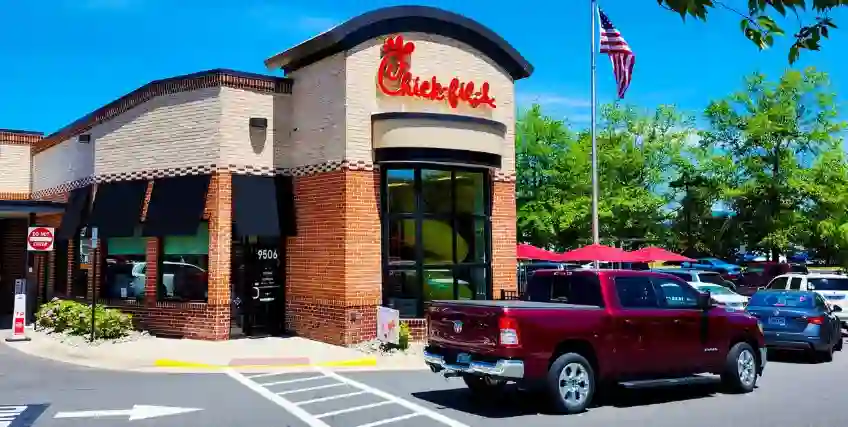Looking for Business Financing?
Apply now for flexible business financing. Biz2Credit offers term loans, revenue-based financing, lines of credit, and commercial real estate loans to qualified businesses.
Set up a Biz2Credit account and apply for business financing.
Key Takeaways
-
SBA loans for business expansion offer affordable, long-term financing for U.S. small business owners.
-
The U.S. Small Business Administration (SBA) guarantees a part of the loan. This helps borrowers qualify with lower risk.
-
SBA loans for business expansion come with lower interest rates, flexible repayment terms, and larger loan amounts for growth projects.
-
Businesses can use business growth loans to fund for real estate, working capital, or even business acquisition.
Small business owners in the United States require both vision and access to the right of financing to expand successfully. Growth often means purchasing commercial real estate, hiring staff, upgrading equipment, or improving cash flow to meet higher demand. However, affordable financing can still be challenging for many business owners.
SBA loans for business expansion are government-backed loans that are designed to help business owners access low-cost financing with flexible terms. These loans are backed by the U.S. Small Business Administration, offering financial leverage to business owners to scale their operations safely.
According to the U.S. Small Business Administration, the SBA has guaranteed around $32 billion in capital to America’s small businesses in FY25. This figure shows the SBA-guaranteed loans support small business growth funding and job creation in the country. So, let’s explore in this article how you can use SBA loans for business expansion.
What Is an SBA Loan for Business Expansion?
SBA loans for business expansion are a type of business loan that are partially guaranteed by the U.S. Small Business Administration.
These business expansion loans are ideal for for-profit companies looking for business growth funding. They can be used for:
- Expanding locations or opening a new branch.
- Purchasing fixed assets such as equipment or machinery.
- Buying or improving commercial real estate.
- Increasing working capital.
- Refinancing existing business debt.
Acquiring another small business or company (business acquisition).
Each SBA loan program under the SBA umbrella serves a unique purpose. Among the various SBA loan programs, SBA 7(a) loan is the most flexible, while the SBA 504 loan focuses on property and equipment financing.
Why Choose an SBA Loan for Business Expansion?
For small business owners, the biggest advantages of using SBA loans for business expansion are affordability, flexibility, and accessibility. Here’s why SBA loans are one of the top options for business expansion:
-
Lower Interest Rates: SBA loans are partially guaranteed by the Small Business Administration, lenders offer competitive fixed-rate or variable-rate options.
-
Longer Repayment Terms: Borrowers can enjoy loan terms up to 25 years for real estate and 10 years for working capital or business equipment.
-
Smaller Down Payments: Most SBA loans for business expansion require lower down payments. This helps business owners preserve cash flow for other business needs.
-
High Maximum Loan Amounts: SBA loan programs like the SBA 7(a) and 504 loans offer up to $5 million in funding.
-
Flexible Uses: Business owners can use funds to support business expansion, refinance debt, or purchase new equipment.
Step-by-Step Guide: How to Use an SBA Loan for Business Expansion
Using SBA loans for business expansion involves a strategic process. Here’s a step-by-step process of how to plan, apply, and use your SBA funds effectively.
- Define Your Expansion Goals
- Purchase real estate for a new branch.
- Invest in upgraded technology or equipment.
- Increase staff or production capacity.
- Understand Eligibility Requirements
- Operating as a for-profit business in the U.S.
- Meeting SBA’s size standards, depending on the industry.
- Reasonable owner equity investment.
- Demonstrating ability to repay the loan.
-
A solid business plan showing growth potential.
- Choose the Right SBA Loan Program
- These can be used for general business expansion.
- They can be used to cover working capital, real estate, or purchasing equipment.
- These loans are ideal for purchasing commercial real estate or major fixed assets.
- They involve a Certified Development Company (CDC) and a private lender.
- These loans provide faster approval within 2-3 days.
- These loans are best for smaller expansions or urgent working capital needs.
- These loans are designed for smaller projects or newer businesses.
- These offer loan amounts up to $50,000, ideal for startups.
- Prepare a Strong Business Plan
- A clear description of your business and market opportunity.
- Details of your business expansion goals.
- Financial projections showing improved cash flow.
- Breakdown of expense such as real estate, equipment, or staffing.
- Gather the Required Documents
- Business and personal tax returns.
- Profit and loss statements and balance sheets.
- Personal financial statement.
- Business license and incorporation documents.
- Business ownership information.
- Apply with an SBA-Approved Lender
- Use the Funds Strategically
- You can use SBA loans for business expansion to:
- Purchase or renovate commercial real estate.
- Fund leasehold improvements to modernize your workspace.
- Refinance high-cost business debt to free up capital.
- Expand product lines or launch new services.
- Strengthen working capital for smoother operations.
- Manage Repayment and Monitor Progress
- Up to 25 years for real estate loans.
- Up to 10 years for equipment or working capital.
Before choosing any type of loan, identify what expansion looks like for your business. Business owners may plan to:
Refinance high-interest business debt to improve cash flow.
For example, a startup business such as a bakery may need funding to purchase larger ovens and retail space. On the other hand, an existing business might require funds for a business acquisition. Hence, having clear business goals helps determine the required loan amount and repayment strategy.
To qualify for SBA loans for business expansion, business owners must meet specific eligibility requirements. The basic eligibility criteria include:
Note: Certain businesses such as nonprofits, speculative real estate firms, or lending companies may not qualify for SBA loans for business expansion.
Different types of SBA loan programs suit different expansion goals. Here’s how these loans can help:
SBA 7(a) Loan:
These loans offer up to a maximum loan amount of $5 million.
SBA 504 Loan:
They offer up to $5.5 million funding for eligibility projects.
SBA Express Loans:
When applying for SBA loans for business expansion, having a detailed business plan is important. It shows the lender how you’ll use the loan amount and generate returns. Here’s what a business plan should include:
Repayment strategy and loan terms.
When you’re ready to submit your loan application when applying for an SBA loan for business expansion, your lender will request specific documentation. These include:
Lease or real estate purchase agreement (if applicable).
Business owners can apply for SBA loans for business expansion through an SBA preferred lender of Certified Development Company (CDC). These can be located through sba.gov.
Once you apply for financing, your loan application will go through several stages. These include underwriting, approval, and funding. Also, the lender and the SBA will review your eligibility, business plan, and collateral.
Some SBA loans for business expansion require a down payment or guarantee fee, but these are usually lower than conventional loans.
If approved and funded, you can use the funds exactly as outlined in your business plan. Strategic use of funds ensures consistent cash flow and maximizes return.
After business expansion, maintain strong financial discipline. You can regularly track your cash flow and ensure timely payments to protect your credit and eligibility for future funding. The repayment terms for SBA loans for business expansion vary depending on the type of loan.
Pro Tip: SBA loans for business expansion have no prepayment penalties. This allows business owners to repay early if profits increase.
The Bottom Line
Expanding a small business is an exciting journey for business owners, but it demands the right financial partner. An SBA loan for business expansion gives access to affordable, flexible funding with the confidence of SBA-guaranteed support.
Business owners need to create a solid business plan and partner with an experienced lender before applying for expansion loans. This can help them turn growth vision into measurable success.So, if you’re ready to explore business banking options that fit your needs, visit sba.gov or connect with an SBA preferred lender.
FAQs About SBA Loans for Business Expansion
1. What is an SBA loan and how can it help with business expansion?
An SBA loan is a business loan partially guaranteed by the U.S. Small Business Administration (SBA). It helps small business owners access funding for business expansion, including buying commercial real estate, upgrading equipment, or increasing working capital.
2. Do SBA loans require a down payment?
Most SBA loans require a down payment. This percentage depends on the type of loan, your credit profile, and the lender’s policies
3. Can an SBA loan be used to refinance existing business debt?
Certain SBA loan programs allow refinancing of high-interest business debt. The SBA 7(a) loan and some SBA 504 loans help borrowers replace existing loans with better interest rates or more favorable loan terms.
4. Can startups apply for SBA loans for business expansion?
While most SBA loans are geared toward existing businesses, startups may be able to qualify under certain programs such as microloans or smaller SBA 7(a) options. However, startups must demonstrate a solid business plan, personal credit strength, and reasonable cash flow projections to meet eligibility requirements.
5. What role does a Certified Development Company (CDC) play in SBA 504 Loans?
A Certified Development Company works with banks and the Small Business Administration to provide SBA 504 loans. The CDC manages the portion of financing backed by the SBA, helping borrowers purchase fixed assets or real estate at favorable interest rates and low down payment requirements.




